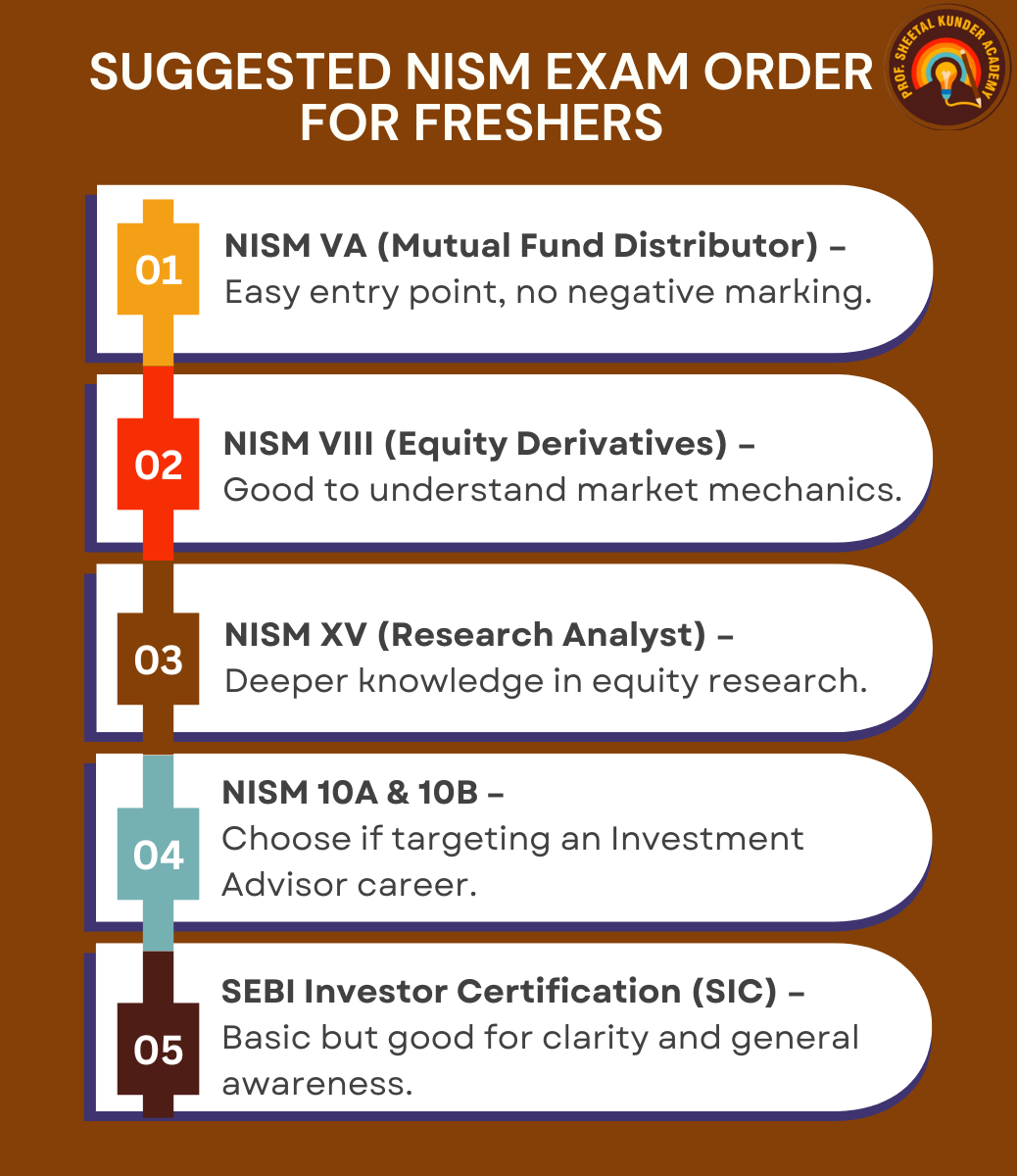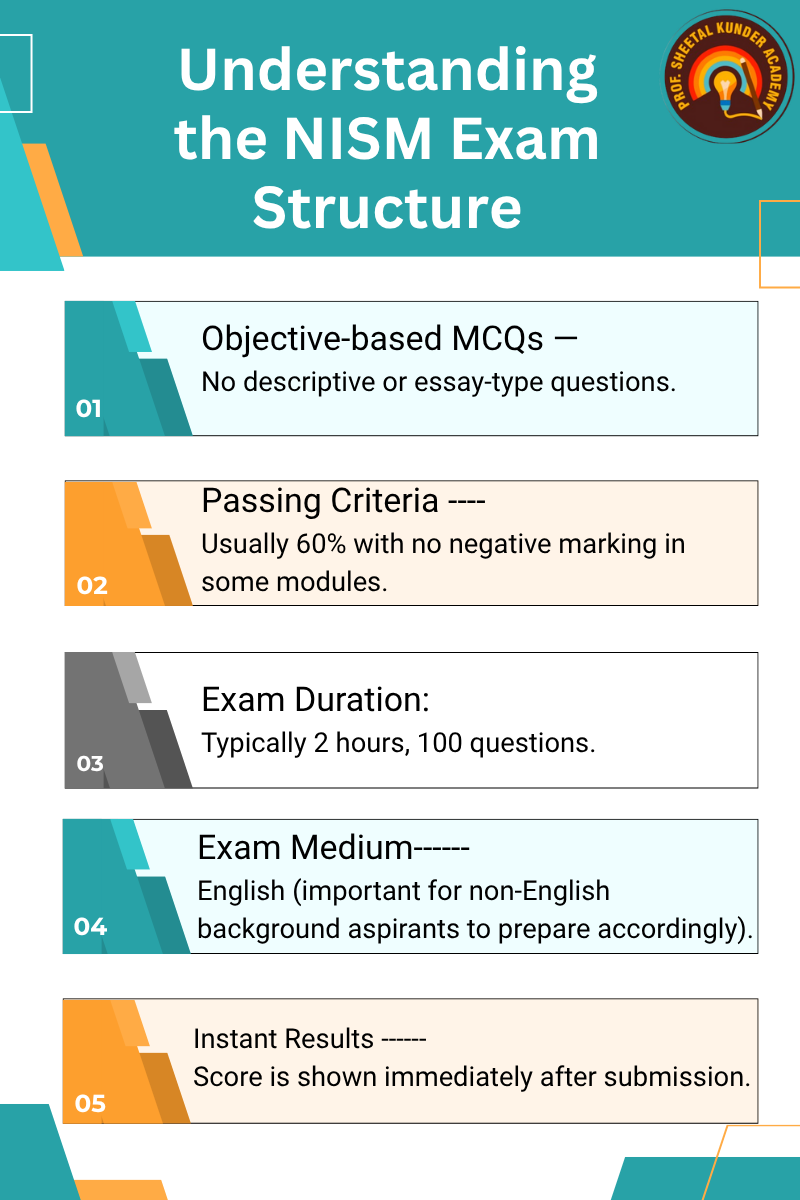There are no items in your cart
Add More
Add More
| Item Details | Price | ||
|---|---|---|---|
Mon Jun 30, 2025
This document summarises the experiences and advice of an individual who successfully cleared multiple NISM exams, including the NISM Research Analyst (XV) module. It provides a roadmap for aspiring financial professionals.
The speaker shares their progression through various NISM certifications and their approach to exam preparation.
Timeline:
Challenge with NISM XV (Research Analyst):
Preparation Strategy:
The speaker has a strong academic and professional background, which likely aided their NISM journey.
Academic Qualifications:
Professional Certifications:

Based on their experience, the speaker suggests a logical order for tackling NISM certifications for those starting their careers in finance.
Suggested Path:
Described as an initial step for general clarity and interest, particularly for those new to NISM. It's considered a "basic thing" and a good entry point.
The speaker, currently a Mutual Fund Distributor (MFD), shares practical insights on choosing between MFD and becoming a SEBI-registered Investment Advisor (RIA).
MFD (Mutual Fund Distributor):
RIA (Registered Investment Advisor):
Final Message:
The speaker emphasises the importance of gaining multiple certifications and continuously learning. The choice of the next NISM series depends on individual career goals and interests. For those with a strong base, even unread exams like the SEBI Investor Certification are seen as manageable due to prior knowledge, but preparation is still advised.

Prof. Sheetal Kunder
SEBI® Research Analyst. Registration No. INH000013800 M.Com, M.Phil, B.Ed, PGDFM, Teaching Diploma (in Accounting & Finance) from Cambridge International Examination, UK. Various NISM Certification Holders. Ex-BSE Institute Faculty. 18 years of extensive experience in Accounting & Finance. Faculty Development Programs and Management Development Programs at the PAN India level to create awareness about the emerging trends in the Indian Capital Market and counsel hundreds of students in career choices in the finance area